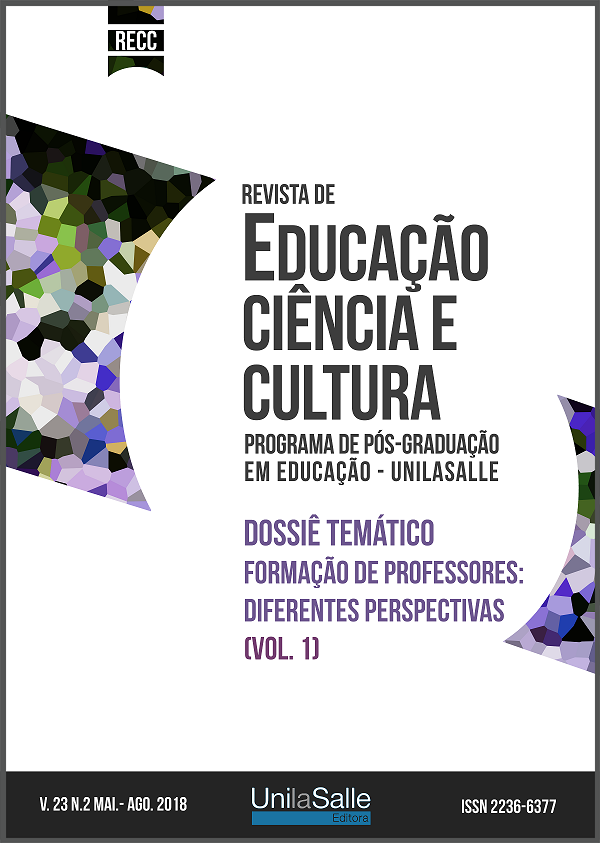Between university and Basic Education classroom: the constitution of teaching in the contemporary world
DOI:
https://doi.org/10.18316/recc.v23i2.4455Keywords:
Teachers’ Knowledge, Graduation’s Degree Curriculum, Constitution of Teaching.Abstract
The present text is inserted in the field of the discussions about the initial formation of teachers. Specifically, it aims to discuss the constitution of teaching, problematizing the formative processes that the universities, through undergraduate courses, have been developing together with Basic Education, based on the public policies of induction to teaching. Considering the concerns that the teacher formation has provoked us and the results of the research performed in this field, we have established a dialogue with the literature of the area and, from the confrontation and problematization of ideas, we systematize the discussions that constitute the body of this text. Initially, we highlight the dilemmas of teacher training, emphasizing the classical question of the relationship between theory and practice, and how this debate influences the constitution of knowledge and the production of the teaching profession. Next, we bring some contemporary reflections about the curriculum that forms the teacher in the degree. Finally, we analyze the contributions of the Institutional Program of Initiatives for Teaching Scholarship (Pibid in Portuguese) in the constitution of being a teacher and in strengthening the links between University and Basic Education. We believe that this work can contribute and broaden the debate on the subject, in the diverse formative spaces, as it conceives the constitution of teaching in contemporary society as a dynamic and continuous process. To do so, it must consider the subject and his experiences, singular and plural, as protagonist in this network of relationships that weave between the University and the Basic School.
Downloads
Published
Issue
Section
License
Authors must submit their manuscripts to be published in this journal agree with the following terms:Authors maintain the copy rights and concede to the journal the right of first publication, with the paper simultaneously licensed under the License Creative Commons attribution that permits the sharing of the paper with recognition of authorship and initial publication in this journal.
Since the articles are presented in this journal of public access, they are of free use, with their own attributions for educational and non-commercial purposes.
The Periodic Journal of Education, Science and Culture in http://www.revistas.unilasalle.edu.br/index.php/Educacao was licensed with a Creative Commons - Attribution - Noncommercial 3.0 Not Adapted.


